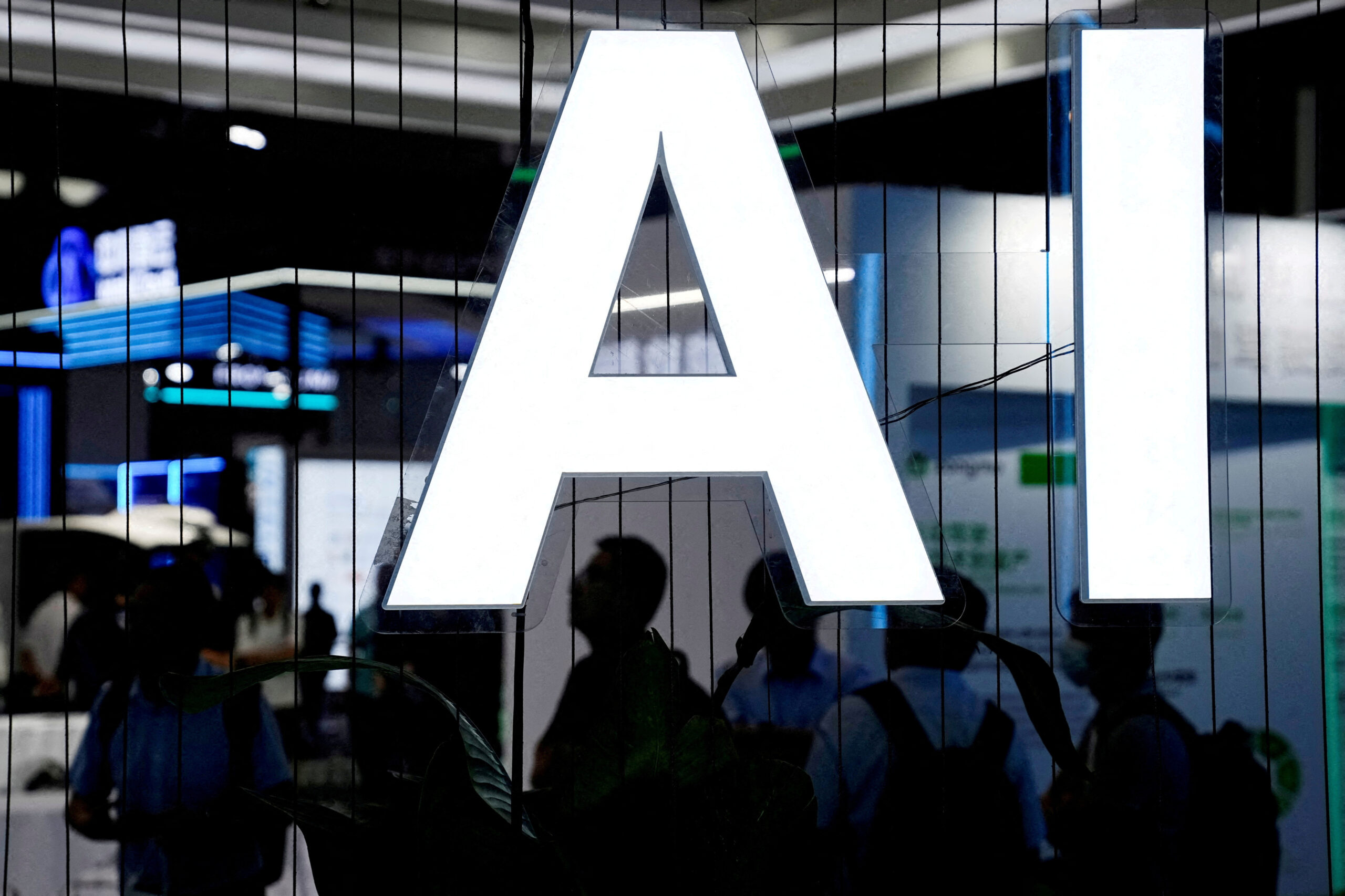
Chinese artificial intelligence (AI) sector showcased its determination and innovation this week at a significant fair in Shanghai, signaling confidence in overcoming Western-imposed restrictions. The event saw companies unveiling advanced products developed by a burgeoning pool of young talent, highlighting the nation’s robust generative AI industry.
The country’s generative AI sector has experienced explosive growth, with the United Nations reporting that China has been the top filer of patents for AI software in recent years. These patents cover a range of applications from creating illustrations to generating computer code, underscoring China’s leadership in this cutting-edge field.
At the World AI Conference held in Shanghai on Thursday, exhibitors were eager to present their latest generative AI products. One notable display featured realistic “watercolours” and sci-fi-themed illustrations produced by advanced AI software, demonstrating the creative potential of these technologies.
Meanwhile, visitors were captivated by a performance from a troupe of humanoid robots. Developed by nearly a dozen Chinese organizations, these robots raised their hands in unison and waved, showcasing the advancements in robotics and AI integration.
Ethan Duan, an employee of a startup incubator, expressed optimism about China’s potential to leverage its large population of tech talent, despite the challenges posed by Western restrictions. “A sudden cut of access to (OpenAI) API would definitely pose some challenge to many corporations right now, but it’s still far too early to say if it’s going to also be a challenge after one year or two,” Duan told AFP.
Duan’s hope is supported by statistics showing that China has significantly expanded its domestic AI talent pool over the last few years to meet the demands of its rapidly growing industry. A global AI tracker by MacroPolo, the Chicago-based Paulson Institute’s think tank, reported that China had nearly half (47%) of the world’s top AI researchers in 2022, up from 29% in 2019.
| Year | Percentage of World’s Top AI Researchers in China |
|---|---|
| 2019 | 29% |
| 2022 | 47% |
The optimistic atmosphere in Shanghai was tempered by the backdrop of increased suspicion and restrictive measures from the United States and other countries targeting China’s AI industry. OpenAI, the US company behind ChatGPT, has accused China of using its language models to create content aimed at influencing social media sentiment. As a result, OpenAI will cease providing its app programming services to Chinese developers next week.
In another move, the US government has revoked export licenses for certain American chips used by Chinese smartphone giant Huawei. This action followed Huawei’s unveiling of a new computer using an Intel AI-capable chip, reflecting the ongoing technological and geopolitical tensions.
Critics of China’s AI initiatives argue that the technology could be used for espionage operations, further fueling the debate over the ethical implications of AI development and deployment.
Despite these challenges, interest in AI products appeared to be burgeoning at the Shanghai fair. Crowds of eager visitors lined up to enter the exposition hall, keen to try out games and interactive exhibits powered by AI.
Shi Yunlei, founder and CEO of an AI-equipped health equipment company, shared that visitors at previous industry fairs had already begun asking to purchase his exercise machines, even though the products are not yet in mass production. “The Chinese robot industry is still pretty hot… everyone is working hard to find a settled direction,” Shi told AFP.
Lyu Meixiu, a representative of software company OpenCSG, stated that her firm was “not too affected” by US restrictions and was actively expanding its operations abroad. “The United States’ technology may currently be ahead of us, but we in China are also extremely strong,” Lyu said. “I think in the future the gap will continue to shrink, or we may even continuously surpass them,” she added.
A keynote speech by Li Qiang, China’s second-ranking official after President Xi Jinping, marked the opening of the conference and emphasized the country’s dedication to AI technology. Premier Li urged nations worldwide to adopt “more open mindsets” on AI and to promote “movement of data across borders, free trade of equipment, and connectivity of infrastructure.”
- Generative AI Exhibits: Realistic watercolours and sci-fi illustrations created by AI software.
- Humanoid Robot Performance: A coordinated display by robots developed by multiple Chinese organizations.
- Expert Insights: Ethan Duan’s perspective on China’s tech talent and future challenges.
- Statistics on AI Talent: China’s growing share of the world’s top AI researchers.
In conclusion, the World AI Conference in Shanghai highlighted China’s resilience and innovation in the face of Western restrictions. The event demonstrated the country’s commitment to advancing its AI sector, leveraging a growing pool of talent and continuing to push the boundaries of what AI technology can achieve. With a focus on fostering international cooperation and open-mindedness, China aims to maintain its leadership position in the global AI landscape.
Featured Image courtesy of Reuters
